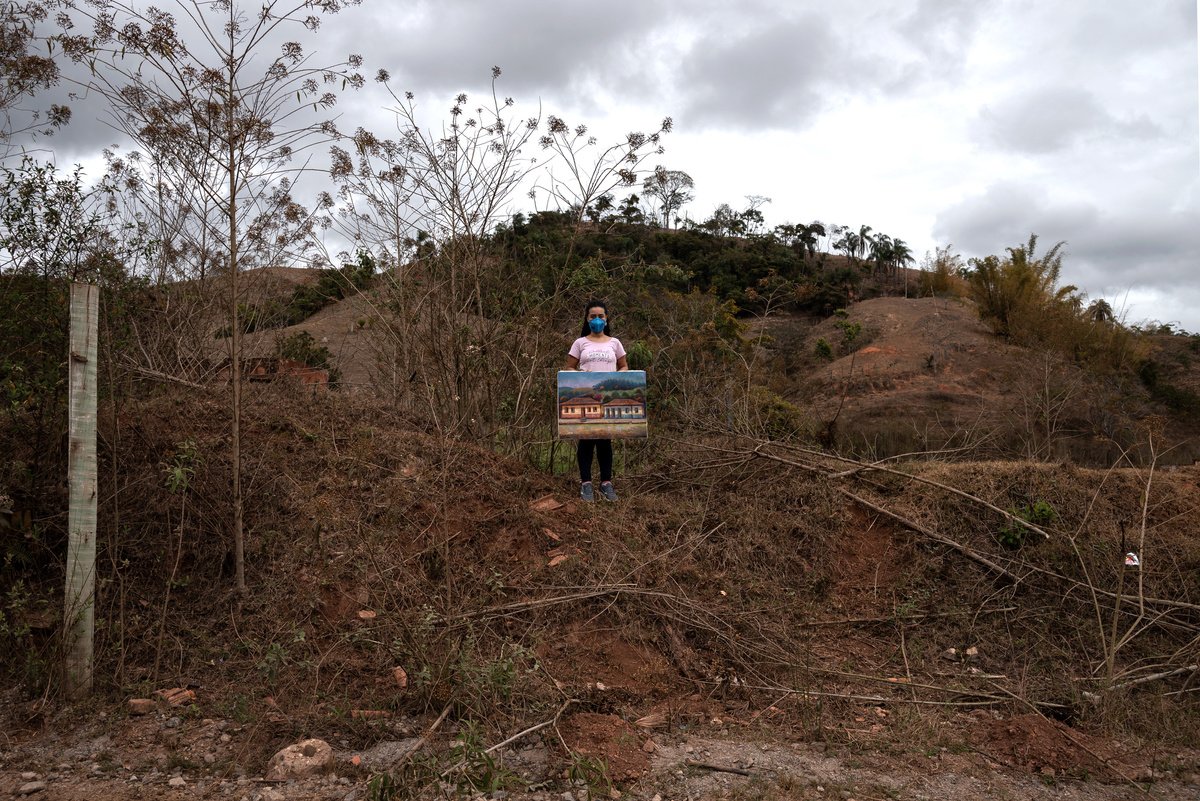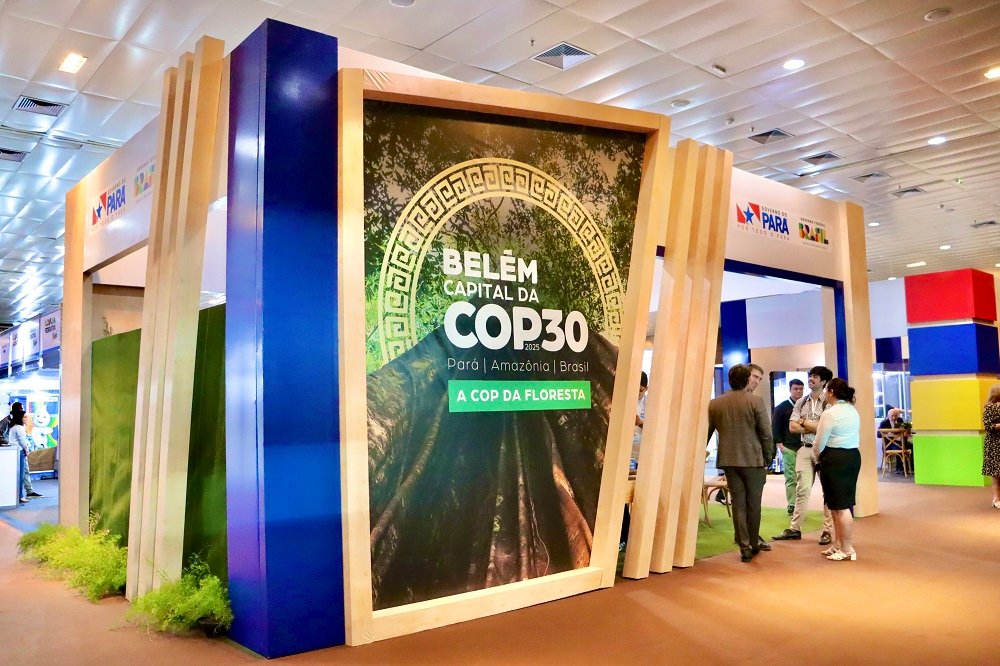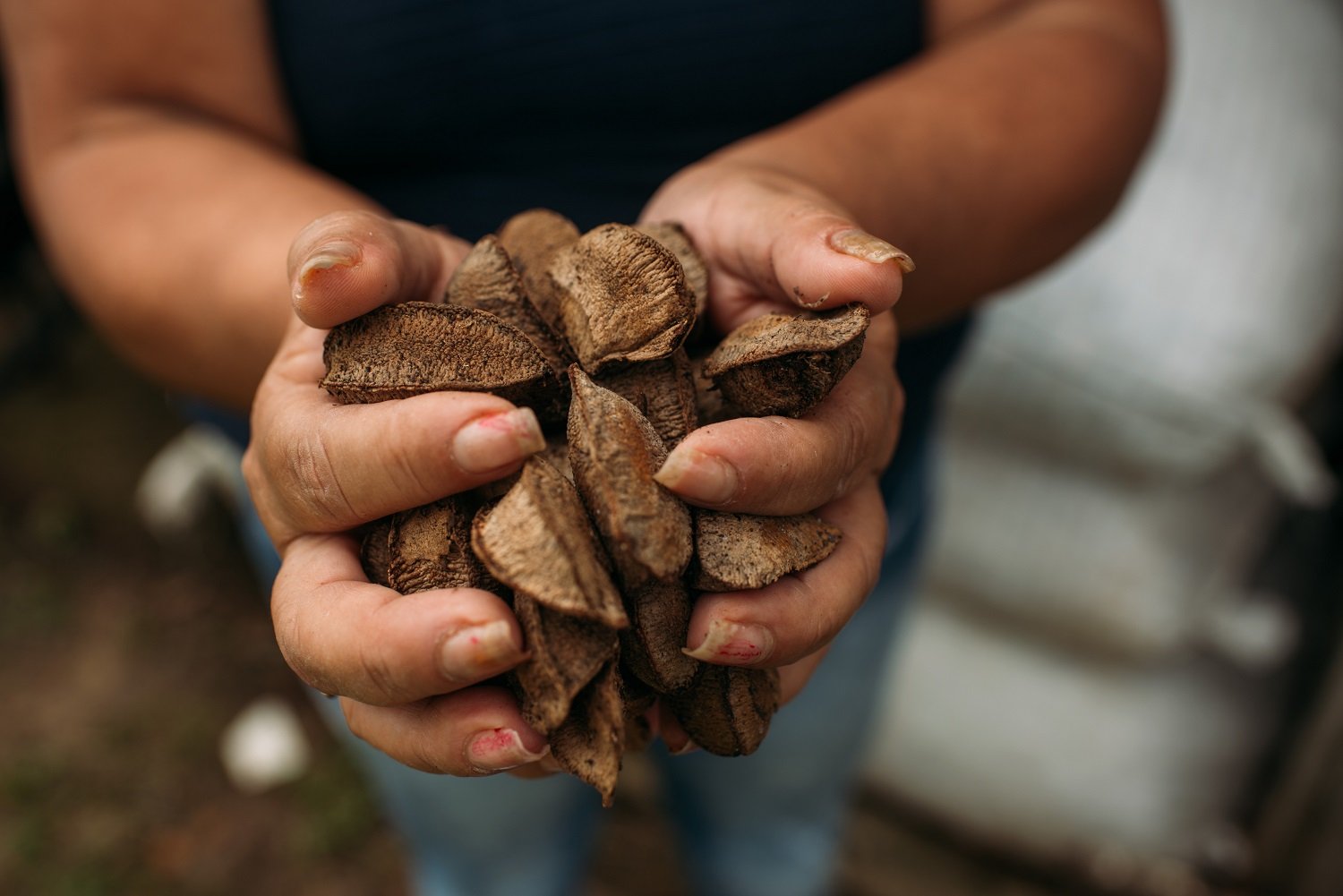Exclusive story by Maurício Angelo, translated by Martin Mantxo
Also available in spanish: No hay pruebas de los 6,5 mil millones de euros que Renova, Vale, BHP y Samarco pretenden haber pagado en reparaciones de Mariana
Photo: Rebeca Binda
The Federal Public Prosecutor’s Office (MPF) says that there has been no independent external audit able to attest that the Renova Foundation has invested the amounts declared in the compensation of the affected people.
The Renova Foundation, an entity maintained by mining companies Vale, BHP and Samarco, claims that it will contribute, until the end of 2023, 36 billion reais (€6.5 billion) for the compensation of affected people and socio-environmental reparation of the Mariana dam collapse in November 2015, considered the worst environmental disaster in Brazil’s history.
According to the Federal Public Ministry, however, the values declared by Renova never went through a serious and independent external audit and there is no evidence that these values correspond to reality and, in practice, this cannot be observed in the Doce river basin and by the reports of those affected.
«It can be seen that these billions are not spent. We don’t have any information about where this money is being spent. They put these numbers on the website, but in no way, as MPF, do we see this happening in the Doce River basin. This is information from Renova itself, there is no guaranteed information that these amounts were actually paid,» says federal prosecutor Carlos Bruno Ferreira, coordinator of the Task Force responsible for the case, in an exclusive interview with the Mining Observatory.
The alleged total amount of € 1,7 billion in reparations spent from 2015 to the end of this year, with €1.4 billion for actions in 2023 alone, was widely reported in the media after Renova reported on 14 February.
The lack of detailed evidence on these amounts is important because it may affect the new agreement for Mariana that is being sewn up since 2021 in the National Council of Justice.
Lula’s government is checking the content of the agreement, which is said to be «95% closed», according to Bruno. Although he did not confirm the amount on the table for the mining companies to pay, due to secrecy, speculation says the figure is around R$112 billion.

This would not include what Renova says it has paid so far, but would be «new money» for reparations and socio-environmental compensation. However, during the renegotiation process, the coordinator of the Rio Doce Working Group began to notice that Renova was inflating the data published on its own website and began to raise this in the internal debate. Renova’s website advertised billions more without any apparent explanation, he says.
The final announced figures of 6.5 billion euros, as well as the total number of people who would have received the compensation, of 409,400 people benefiting until the end of 2022, are not supported by reality, according to the MPF.
«During the time of the renegotiation Renova frequently updated the data on the website, increasing it by one billion, they do it as a strategy. The more they put on the website that they paid, it gives the image that they are doing a lot, making a lot of progress. For these values, I repeat, we have no audit, they are values offered by Renova. I have no guarantee, because of the lack of a serious audit in Renova, that these amounts were actually paid. And that number (of people) never corresponded to what they more or less reported,» reinforces Carlos Bruno, who also holds a PhD in Constitutional Law from the University of Seville.
In addition to the lawsuit in Brazil, in July last year, the British courts accepted the request that the responsibility for the Mariana catastrophe also be tried in England, in a class action representing 200,000 people and targeting Anglo-Australian BHP, the world’s largest mining company and Vale’s partner in Samarco.
Last November, the dam burst seven years ago. In Brazil, as the Observatory showed, the process is still in its beginnings and none of the accused has been criminally punished. The statute of limitations for environmental crimes could expire in 2024.
Renova has been forced by the courts to reimburse those affected for the sums improperly paid to lawyers
In March 2021, I exclusively revealed in Observatório de Minería (The Mining Observatory) that federal judge Mario de Paula Franco Júnior, of the 12th Federal Circuit Court of Belo Horizonte, gave guidance to lawyers in the state of Espírito Santo on how they should proceed to obtain a new compensation system for the Mariana dam breach.
The simplified compensation system, called «Novel» and created by the judge with the consent of Vale and the Renova Foundation, spread rapidly throughout the Doce river basin. The obligation to pay 10% to lawyers who file claims has spawned a cottage industry of small lawyers in mostly small and poor towns.

In June 2022, the courts forced to stop deducting 10% of the compensation paid to affected people, as the costs were to be borne by Renova itself.
Following court decisions that also annulled the «definitive discharge» that the affected person had to sign and reinstated the retroactive payment of another financial aid, the emergency aid (AFE), Renova reimbursed the impacted residents R$ 998 million unduly paid to these lawyers. Another 74 million euros were paid by Renova in Minas Gerais and Espírito Santo for the cut in AFE.
The data disclosed by the Foundation itself, the result of the lawsuits, were announced by Renova in a note in Folha de S. Paulo and on the entity’s website. In February, Renova revealed that compensation payments in 2022, mainly in «Novel», grew by 54% compared to 2021.
The MPF found the figures strange and questioned Renova.
«Once again Renova takes the values for which it is condemned and tries to mask them to say that it is doing a kindness for those affected, that it is good for those affected. This does not correspond to reality,» says prosecutor Carlos Bruno.
Following a court decision in September 2022, Renova says it passed on 53 million euros to the lawyers inserted in Novel that were not deducted from those affected.
The total of 1.45 billion euros paid in the Simplified Compensation System until December 2022, which reached 74.9 thousand people according to Renova, also does not close with the 10% initially planned to lawyers, which would be 144 million €. By including in the project the retroactives and extras paid directly to the lawyers, according to Renova, the final value closed at 1635 billion € at the end of 2022.
«Messing with Renova is a futile effort». Environmental reparations in check.
The confusion of numbers reveals a governance systematically criticised by the Public Prosecutor’s Office, the Ombudsman’s Office, mayors and those affected since 2015.
«There is a conviction that messing with Renova is a useless effort at the moment, after all these years of Renova operating without any control, without any verification by the public authorities, the work that would be involved in verifying these values is counterproductive. In fact, it is better to reduce Renova’s functions as much as possible and start from scratch,» Carlos Bruno told Observatório da Mineração.
The Doce, one of Brazil’s main rivers and even part of Vale’s name, is still heavily polluted by toxic sludge and heavy metals along the almost 700 kilometres that separate Mariana (Minas Gerais), from Regência, in Linhares (Espírito Santo), where it flows into the Atlantic Ocean.
The amounts earmarked for socio-environmental actions are criticised and, in practice, this is not the case in the Rio Doce basin. For forest restoration, for example, Renova claims to have allocated €306 million.
«What has been done in terms of reparation in the Rio Doce basin is insignificant, it is too little to repair all the environmental damage caused by the tragedy of the Fundão dam,» says the coordinator of the Mariana Working Group. For Carlos Bruno, «we see that the basin is not changing, things are not improving, environmental reparation is not increasing, this is a fact».

Lula’s government evaluates Mariana’s repactation
Lula’s government is now learning the terms of the renegotiation signed so far and could modify the contract, which would be «practically ready».
The original value requested in the Public Civil Action for compensation was €27 billion. The current settlement level would be €20 billion agreed with Vale, BHP and Samarco. Whatever the final amount, the €6.5 billion that Renova claims to have spent so far should not be included in the bill, argues Carlos Bruno of the MPF.
«We understand that it is not up to us to do a fine screening of Renova. Renova can say how much it claims to have spent, what matters is the new money that will compensate the affected people and the environment of the Doce Basin, money that will serve for the future, effective and rapid repair of the basin and the lives of all the affected people’s affairs,» says the prosecutor.
The MPF welcomes the resumption of discussions in the National Council of Justice, requested by Minister Rosa Weber, and has provided all the information requested by the federal government.
The discussion at this point would be about the flow of payment, but that «the final and difficult decisions must be taken», evaluates Carlos Bruno. Marina Silva, Minister of Environment, should review the values and terms, for example.
«The federal government has the right to review this whole agreement, evaluate it and make suggestions as to what can be improved. Up to the moment it is signed, nothing is set in stone. Taking into account all the expertise produced so far, there are numerous possible scenarios for an agreement. I see no reason why it should not be signed within a very short period of time. It is up to the Union to assess it and consider it appropriate, to suggest the necessary changes and to take decisions,» the prosecutor summarises.

Renova defends the information provided and says it is being audited.
Requested by the Observatório da Mineração, Renova sent the following note to the site:
«The Renova Foundation clarifies that the amount of €1.453 billion reported on 07/02/2023 refers to the total amount paid in compensation and emergency financial aid until December 2022, without considering the total retroactive fees of €179 million paid to those affected after the decision issued in September by the 4th Federal Court.
The amount of €1.635 billion disclosed on 14/02/2023 considers the total amount paid until December 2022, including the retroactive fees paid to those affected.
The total amount of compensation and emergency financial assistance of €846 million disclosed considers payments actually made only in 2022, including retroactive amounts. This amount also includes sums paid as legal fees to those compensated.
The data sent by the Renova Foundation on 13 February 2023 to the Federal Public Prosecutor’s Office by letter, following a request, only included the information requested in letter 769/2023. In response to the subsequent request, Renova reported on its website the total amounts paid, within the scope of 2022, in detail, which can be checked at the link.
The Simplified Compensation System enabled payment to categories with difficulties in proving damages, such as laundresses, artisans, carters, sand and mineral extractors, subsistence and informal fishermen, among others. The system also compensates water damage and formal categories, such as professional fishermen, boat owners and businesses such as hotels, inns and restaurants.
The amounts of compensation paid by the Simplified Compensation System are ratified by the 4th Chamber of the Federal Court.
The Renova Foundation clarifies that it is a private, non-profit entity, based on transparency and dialogue with society. The institution’s processes are permanently monitored and inspected by independent external audits».
I also contacted Vale, BHP and Samarco to ask them to comment on the MPF’s statements and the figures reported by Renova.
Samarco responded that «the Renova Foundation, created from the Conduct Adjustment Transaction Agreement (TTAC), signed in March 2016 between Samarco, its shareholders and the Federal, Minas Gerais and Espírito Santo governments and other entities, is an autonomous and independent entity, dedicated full time and exclusively to implement and manage the programmes and actions for reparation and compensation for damages resulting from the Fundão breach.»
Vale and BHP did not respond.

Evidence of Vale and BHP using Renova to reimburse the amounts paid in reparations
Two years ago, the Minas Gerais Public Prosecutor’s Office called for the extinction of the Renova Foundation and the payment of moral damages stipulated at 10 billion reais (1.800 million de euros). The renegotiation should confirm the end of Renova, which has accumulated inefficiency and lack of transparency over the last seven years.
I showed in 2020 that, according to Renova’s own statute, the Foundation can be extinguished by unilateral decision of the mining companies Vale, BHP and Samarco at any time. And the companies can also recover the money in Renova’s coffers.
The intricate tax manoeuvres also raise suspicions.
In July 2020, an exclusive investigation by the Observatorio de Minería (The Mining Observatory) revealed that Vale and BHP can recover money that should be used to repair the Mariana disaster. The scheme would use the Renova Foundation.
There are indications that donations from Vale and BHP to Renova are being recorded as debt incurred by Samarco, which agrees to return the money to its parent companies. This is a manoeuvre prohibited by the Federal Treasury.
In June 2021, Samarco’s creditors confirmed, via receivership, what our investigation of July 2020 showed in an unprecedented way: these manoeuvres by Vale and BHP could represent a repayment commitment by Samarco of 4,322 million euros.
Half of Samarco’s €9 billion debt would actually be owed to Vale and BHP, considering the contributions made to the Fundação Renova. In this position, in addition to receiving the money back, Vale and BHP appear as privileged creditors and a prominent position in Samarco’s judicial recovery.
Samarco, which is half and half controlled by Vale and BHP, owes more than €900 million to the federal government, in a 2021 estimate obtained through the Access to Information Act.
Descubra mais sobre Observatório da Mineração
Assine para receber nossas notícias mais recentes por e-mail.





